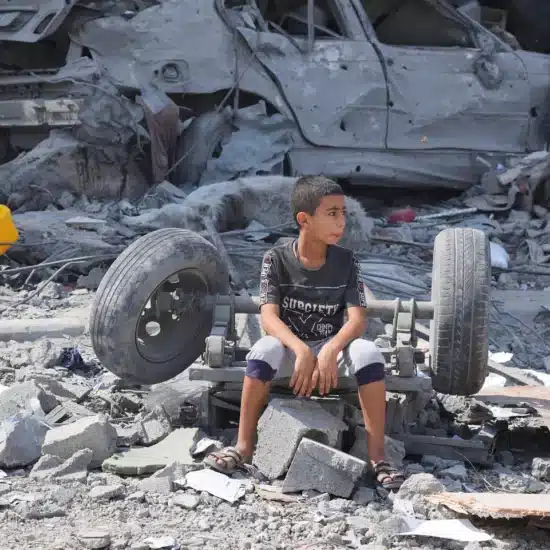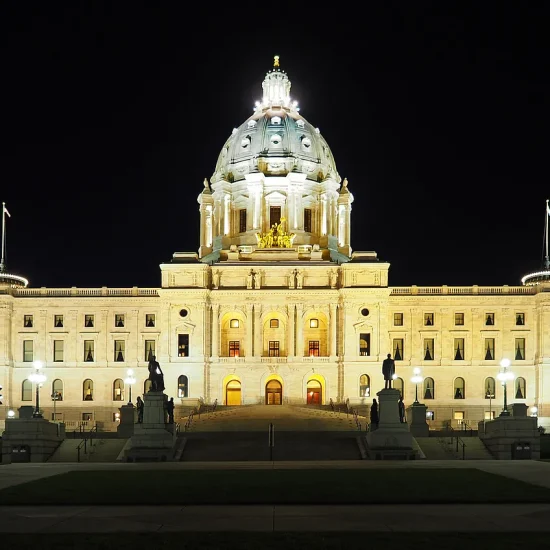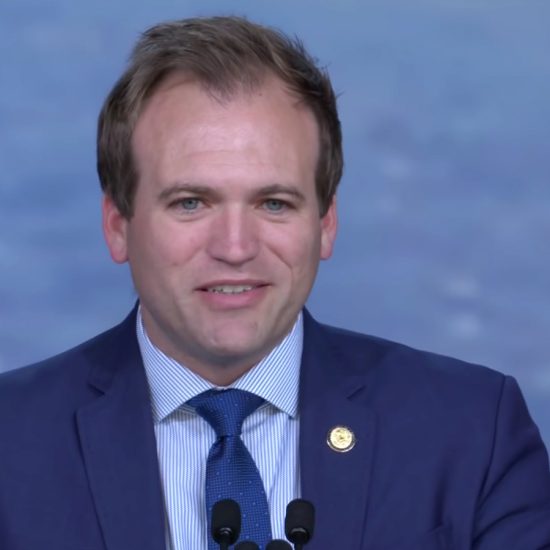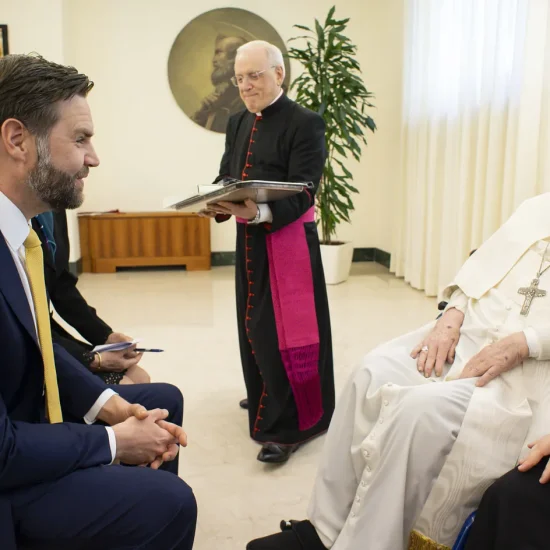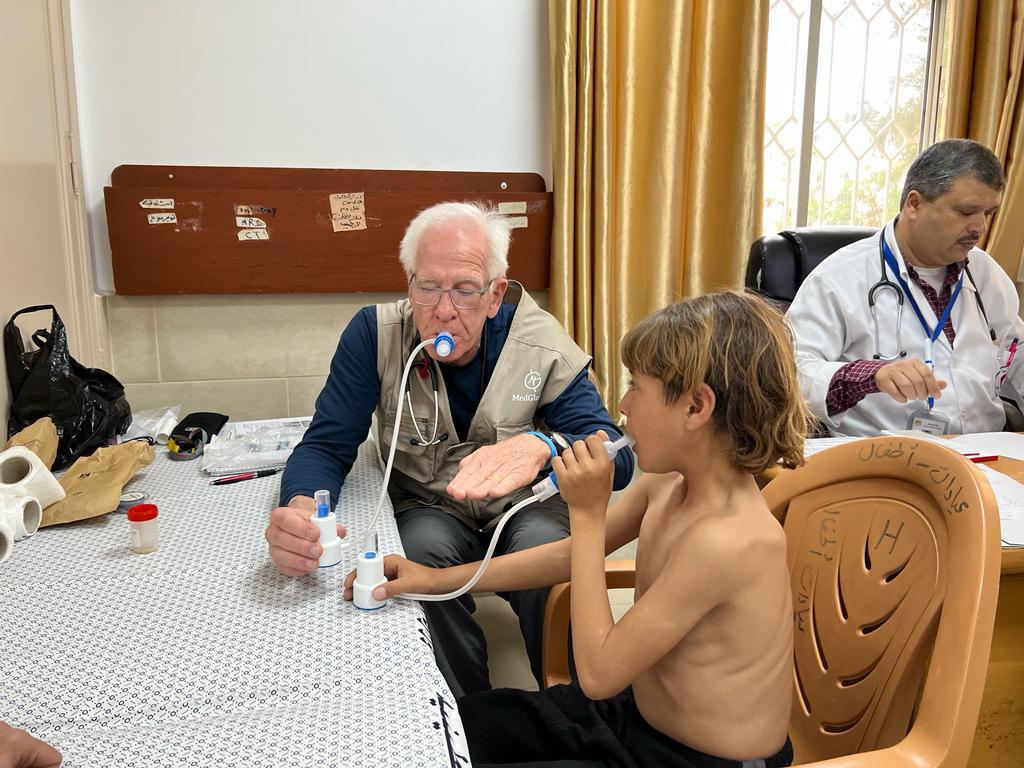
As I reflect on this Lenten season, I find myself returning to Mark 10:45, “For even the Son of Man did not come to be served, but to serve, and to give his life as a ransom for many.” Jesus came to serve and save humanity, and his selfless love, service, and sacrifice paved a path for us all to follow. As we celebrate Easter and his ultimate sacrifice, we must all reflect on how we may better serve our communities, especially the most vulnerable among us.
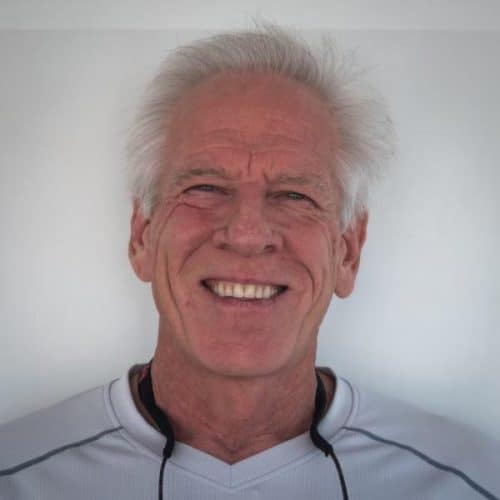
Dr. Gregory Shay
As a Catholic and a pediatric pulmonologist, I have always felt closest to God when treating my patients. There is something profound about being able to use my skills and knowledge to alleviate suffering and help those in need, and it is in these moments of healing and compassionate care that I feel a deep connection to my faith. It is because of my faith that the ongoing humanitarian crisis in Gaza has troubled me so deeply, and why I chose to join other U.S. physicians on a medical relief trip to the region earlier this month.
I arrived for my second time in Gaza as part of a team led by the global humanitarian organization MedGlobal, with the goal of training and supporting local doctors to build long-term capacity and sustainable healthcare systems in the region. At Abd al-Aziz al-Rantisi Hospital, west of Gaza City, I worked with local doctors to provide specialized care for children with cystic fibrosis, training hospital staff on the management and treatment of CF patients.
As a CF specialist, I knew the median age of survival for a patient with cystic fibrosis in the U.S. and Europe was into the 40s. Imagine my shock when my young CF patients started arriving in the clinic gasping for breath and cachectic with sunken eyes and bluish lips. The children of Gaza die from cystic fibrosis by age 14. Here were 13-year-old children the size of 8-year-olds. How could this be in 2023 when there is a genetic drug to cure the disease? These are God’s children. These are God’s people. These are our children. In Gaza, even the most common medications are not available. How could this disparity exist just an hour from Israel’s thriving capital of Tel Aviv?
It is too easy to focus on our differences from the people of Gaza, and far more important to recognize that at our core, beyond geographical distance and faith traditions, we are alike. At the heart of our faith is the belief that all human life is sacred and worthy of dignity. This is why it is so heartbreaking to see the people of Gaza facing such tremendous challenges in accessing even basic healthcare.
The Gaza Strip, a narrow and politically volatile region on the eastern Mediterranean coast, is home to 2 million people who have endured years of isolation and instability for over a decade. Propelled by the ongoing conflict, a longstanding blockade, and an economy in decline, the humanitarian crisis in Gaza has only worsened and left 65% of the population living below the poverty line and approximately 62% of households experiencing food insecurity. Prior to the 10-day bombardment in May 2021, over 1.6 million people were in need of humanitarian assistance, a number that has only grown due to the pandemic and ongoing political conflict.
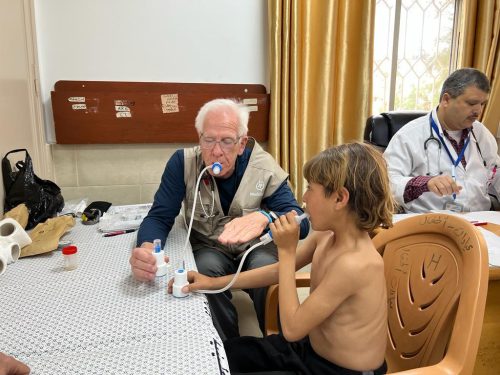
Dr. Shay with a young patient
The state of health care in Gaza presents an unbearable situation for its residents. Thousands of individuals are left vulnerable and without access to proper medical care due to chronic shortages of medication, supplies, and healthcare providers. Gaza’s health care system is heavily reliant on humanitarian aid to provide basic medical services, but constraints on the entry of supplies into the region often delay this aid. Restrictions on movement and reliance on travel permits prevent patients and their companions from reaching emergency medical care and delay healthcare workers from administering aid quickly.
As Christians, we are called to serve the most vulnerable among us. It is our responsibility to advocate for those who are suffering and to work towards a more just and equitable world where all have access to basic healthcare and human needs. The people of Gaza have been cut off from the world and deprived of life-saving systems and resources, but by partnering with them, we can build lasting healthcare networks that reflect the region’s needs and improve the population’s well-being.
The crisis in Gaza is complex and multi-faceted, but we must keep ourselves from becoming overwhelmed by its enormity. Instead, we can take concrete steps to support the people of Gaza by investing in organizations that provide healthcare and humanitarian aid in the region, advocating for policy changes that prioritize the needs of residents, and educating others about the crisis.
The current situation in Gaza calls on us to act with urgency and compassion. We’re taught that our lives are lived most fully when dedicated to the needs of others and that we must love our neighbors as ourselves. Throughout the Lenten season, we’re called to provide meaning to Jesus’ sacrifice through acts of our own, to be worthy of God’s mercy and love. As we prepare for Easter, please join me in turning our prayers into action for the people of Gaza.
Dr. Gregory Shay is a pediatric pulmonologist based in Oakland, CA, who has volunteered for several medical relief trips with MedGlobal, a humanitarian NGO that provides emergency response and health programs to build resilience among vulnerable communities around the world.

